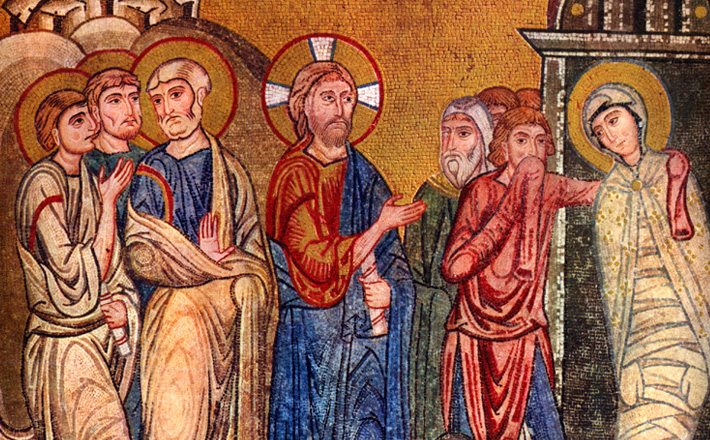Commentary on Romans 8:6-11
Paul is convinced that because of Christ’s life, death, and resurrection a new reality is available for humankind.
Paul believes that this new reality is not something people dream about in their heads, or have to work hard to pretend that they are living in. It is not a reality that exists somewhere else or in the future. Paul is certain that it is real, it is here, and it is now. Paul is convinced that because of Christ’s life, death, and resurrection the new reality — some interpreters of Paul, like J. L. Martyn, call it a new cosmos — is here now.
Paul believes that here and now humans can live in the Spirit (verse 9). This is not to say that they constantly have experiences of the Spirit, such as speaking in tongues or prophesying or the capacity for self-sacrificial love. It is rather to say that Paul thinks that believers in Christ live in a new eco-system, a new place with new reality structures. Rather than living in an eco-system structured by sin and death, they live in one structured by Christ, by the Spirit, by life. People do not enter this alternative reality on their own. People may live in the Spirit because they are “in Christ Jesus” (8:1).
Paul understands that believing in Jesus Christ means at the same time living in Christ Jesus. Our belief in Christ is our entrance into the being of Christ. We enter an alternate cosmos through our faith in Christ. That alternate reality is the reality of Christ and the Spirit. This is a vastly different place and way to live than when we lived in the flesh.
The “flesh” here refers not to the skin of our bodies but to a way of living, a reality, a cosmos that is dominated by death (verse 6). The “flesh” is for Paul a power, a force that works alongside sin and death. The purpose of the ‘Flesh’ is to produce death and hostility to God (verses 6 and 7). The ‘Flesh’ seeks to constrain people in a way of life that has everything to do with death and with hatred of the God of life and love.
Paul helps his hearers to recognize that because they are “in Christ” they have been liberated from the “flesh”; they do not need to live lives that are turned towards death and away from God. Because of Christ’s life, death and resurrection, and by virtue of living “in Christ,” people are liberated from the “flesh” and freed to live in the Spirit.
The word “mind” in verse 6 — to set the mind on the flesh — means mentality or outlook or aspiration. It does not mean mind in the sense of the capacity to reason, although it includes that. The Greek word — phronema — indicates what a person strives for, what a person aims at, what a person cares most about, an orientation.
Paul is saying that living in the “flesh” means that we necessarily care most about what the “flesh” cares about — death and the things of death; all that is against the God of life and of love. The alternative reality — the one in which those in Christ live — is the Spirit. In the Spirit the orientation is towards life and peace (verse 6). Clearly, it is possible to be in the Spirit and yet not take advantage of that marvelous location.
Paul needs to open the eyes of his hearers — who are already believers — to the reality of where they are. They are in the Spirit and so they can allow their orientation, their deepest desires and the focus of their lives to be about God’s life and peace. The requirement for being in the Spirit is that the Spirit is in us. It is the Spirit of God that lives in us (verses 9, 11). In this new reality, then, God has made available God’s own Spirit through the work of God’s own Son.
God’s Spirit is the Spirit of life and of the power of life. The Spirit of the one who raised Jesus from the dead dwells in believers (verse 11a). The power of God’s Spirit is such that even the inevitable deaths of our bodies cannot deny the life of God’s Spirit. God’s Spirit will give life to our bodies in the same way as God’s Spirit did to Christ’s body.
It is to be noted that the Spirit is also the Spirit of Christ (verse 9). This is one of the immensely significant passages for understanding of Paul’s view of the Trinity. While clearly Paul did not use the term “Trinity,” he did think there was an inseparable identity of God, Christ, and the Spirit.


April 6, 2014